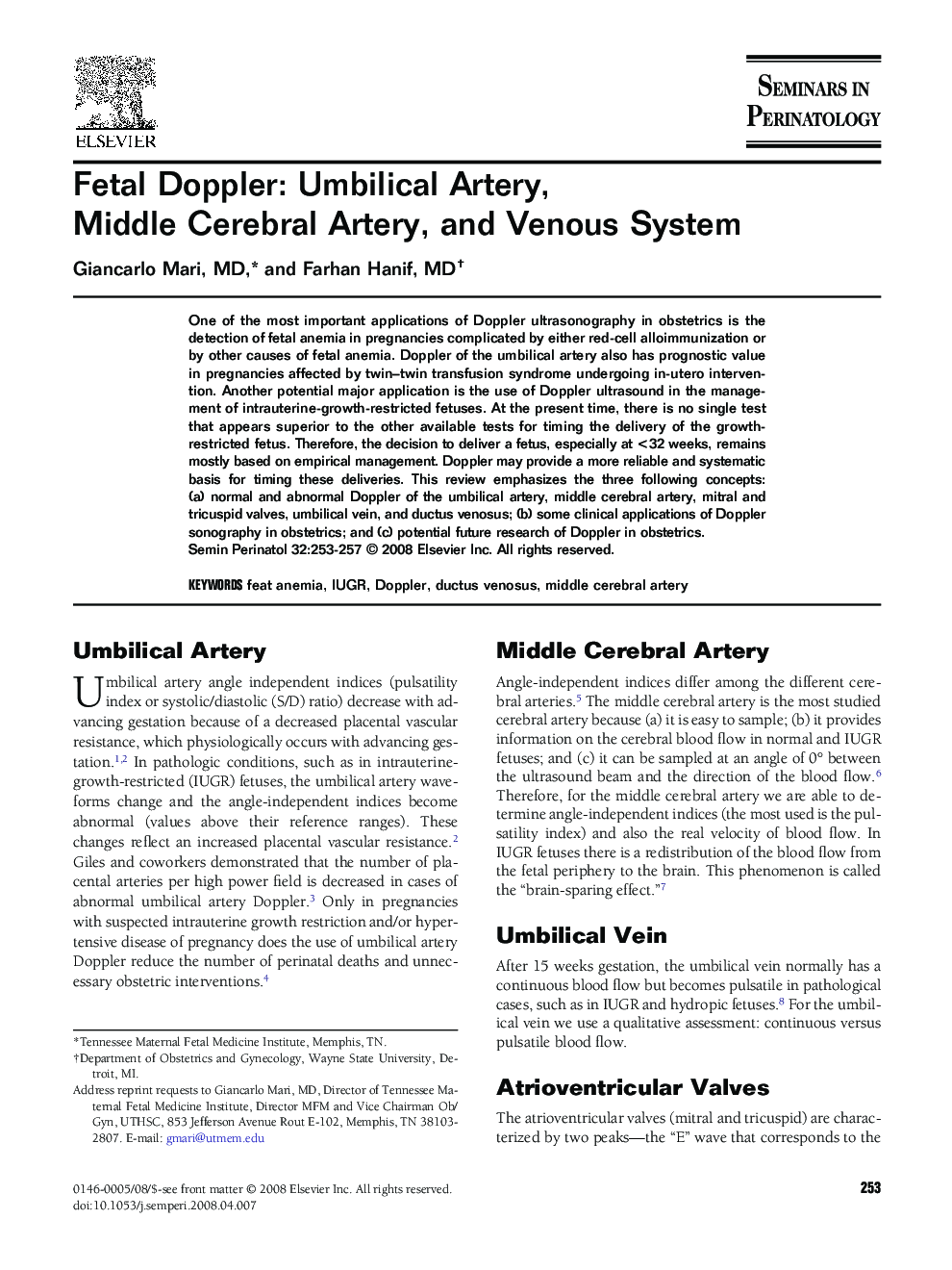| Article ID | Journal | Published Year | Pages | File Type |
|---|---|---|---|---|
| 3836913 | Seminars in Perinatology | 2008 | 5 Pages |
One of the most important applications of Doppler ultrasonography in obstetrics is the detection of fetal anemia in pregnancies complicated by either red-cell alloimmunization or by other causes of fetal anemia. Doppler of the umbilical artery also has prognostic value in pregnancies affected by twin–twin transfusion syndrome undergoing in-utero intervention. Another potential major application is the use of Doppler ultrasound in the management of intrauterine-growth-restricted fetuses. At the present time, there is no single test that appears superior to the other available tests for timing the delivery of the growth-restricted fetus. Therefore, the decision to deliver a fetus, especially at <32 weeks, remains mostly based on empirical management. Doppler may provide a more reliable and systematic basis for timing these deliveries. This review emphasizes the three following concepts: (a) normal and abnormal Doppler of the umbilical artery, middle cerebral artery, mitral and tricuspid valves, umbilical vein, and ductus venosus; (b) some clinical applications of Doppler sonography in obstetrics; and (c) potential future research of Doppler in obstetrics.
